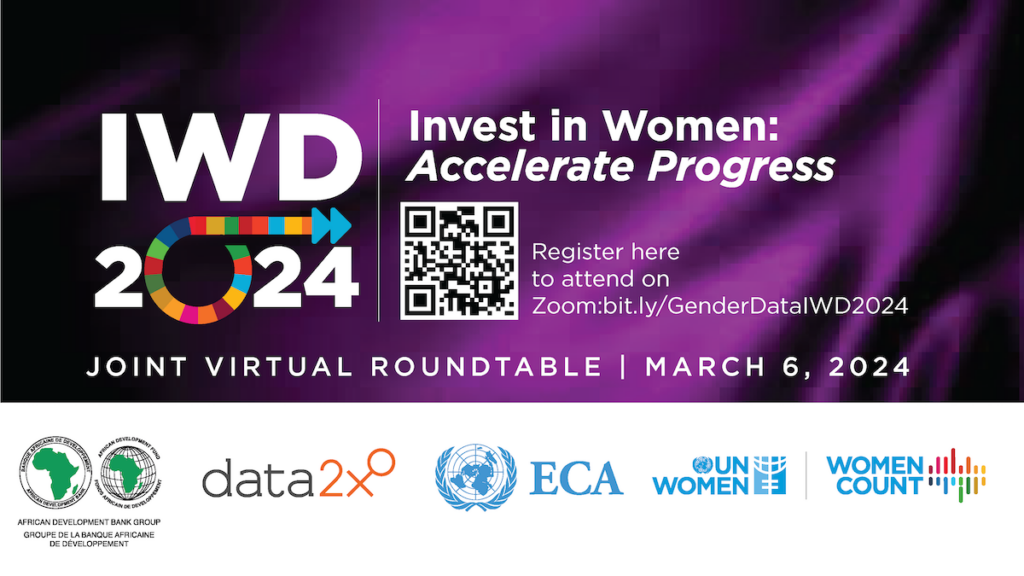Public sector, civil society, and media leaders from Africa and Arab States recently convened for a pre-International Women’s Day 2024 roundtable discussion focused on the pivotal role of gender data in driving progress towards regional and global development objectives. Led by experts from finance and gender ministries in Morocco, Uganda, Senegal, Rwanda, and Cameroon, the discussions shed light on the importance of investing in gender data to accelerate social and economic advancement.
Read more: Spain: Feminizing Media at Madrid Woman’s Week 2024
The roundtable highlighted the critical significance of gender data in understanding the realities of women, girls, and gender-diverse communities, as well as in measuring progress on gender equality and achieving the Sustainable Development Goals (SDGs). Krista Baptista, Executive Director of Data 2X, emphasized the urgent need for adequate funding, citing an estimated $500 million annually required globally by 2030 to support core gender data systems.
View also:
Despite the growing momentum for gender equality, global financing for gender data experienced a significant decline in 2020, posing a notable challenge to progress. Participants stressed the necessity for enhanced collaboration between gender data producers and the media, recognizing the media’s role as crucial disseminators of gender information. Additionally, experts underscored the importance of nuanced data beyond raw numbers to provide a comprehensive understanding of the state of women and girls.
View also:
African countries and Arab States demonstrated their commitment to leveraging gender data to expedite progress towards the SDGs, Agenda 2063, and other regional and national development priorities. Examples from Morocco, Uganda, and Rwanda illustrated how gender-responsive budgeting initiatives have led to tangible impacts, such as achieving parity in education enrolments and addressing gender-based violence.
Read more: Saudi Arabia: AfriLabs to Spearhead African Tech Delegation at LEAP 2024 in Riyadh
Furthermore, the discussion emphasized the imperative of transitioning to a “care society,” where both men and women share unpaid care work, and policies are enacted to effectively manage this time for economic and social growth. Antonia Ngabala-Sodonon, UN Women Special Representative, highlighted the vital role of evidence-based policies in breaking the status quo of inequalities and empowering women and girls to realize their full potential.
